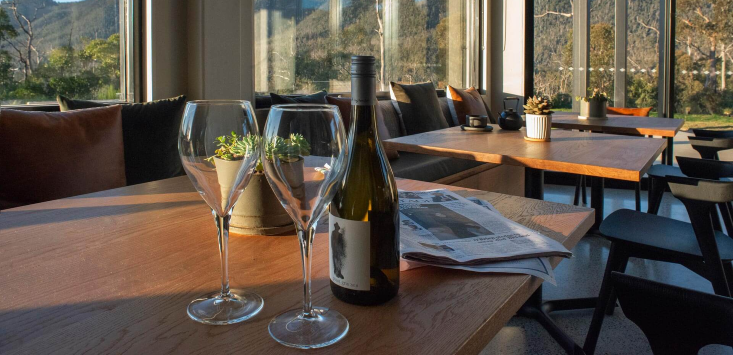
The Retreat is one of many businesses that has faced death due to COVID-19 lockdowns. Source: supplied.
The sales rep made the comment quite by accident. I’d asked how his commercial customers were handling Melbourne’s newly minted lockdown. He sells natural gas to businesses to power their plant and equipment.
“I’m getting a lot of cancellations on equipment, so it must be bad.”
It turns out his hire rates are $2 per gas bottle per month. “So people are looking to save $6-$12 in the time we have left in this morass?” I asked.
“Yeah. They just can’t see the end. They might have three or four forklifts that run off gas that have already been idle for months. So that’s maybe $50 of rental. And guess what?”
‘Yes?”
“They’re emptying out the bottles before I pick them up.”
“What does that mean, where’s the gas going?” I asked, surprised.
“Home. They’re using the gas at their homes for heating and cooking.”
This created a very third-world picture in my mind of people crouched over burners, reverse fitting canisters and performing strange work arounds to extract value from $20 or $30 of gas.
We’re all getting better at understanding the wider cost of our lockdowns. To prioritise the health system, preserve human life and to stop emergency department’s having patients lining corridors, there has been agreement to let many good businesses die in a ditch. But how many? It’s hard to know. Each death is very different.
Early-stage startups will generally be bootstrapping their life savings or gifts from family. That money gets burned and when the revenue doesn’t arrive, it’s goodbye and onto operation next. One bright young client of mine started a job at the NDIS supervising medication compliance after his visionary retail offer failed. He still owes $160,000 on that.
Fast growth companies will have defaulted on finance and be getting their security called in. Directors who acted as guarantors will be selling assets or contributing the cash required to clear their names. Mature stage businesses will be selling inventory and capital at give away prices. For those in decline, the lockdowns really confirmed what was already written in ALL CAPS on the wall.
Sole traders may have been tinkering for years on a business that gave them a living. They generally don’t cancel their ABN, they just look for a job or move onto welfare payments and store or dispose of their business stock. A rusting food trailer. Cheeses, jams and relishes quietly passing their use by dates.
Incorporated companies may go for insolvency protection and wind up properly. Others mothball. Some scrimp down their holding costs as best they can to see if they can wait it out.
We need hope
That’s why we in the business community need a roadmap out of Delta lockdowns and the political commitments and customer incentives to make it happen.
So far as we know, there hasn’t been the resurrection of any of COVID’s human victims — but in business it is possible. What was dead can be brought back to life. But let’s not be silly: it takes a lot to bring a business back. Passion. Commitment. Conviction. Cash. Certainty. Hope.
One of my community roles is being chair at The Retreat, a $2 million respite facility in the Yarra Valley. After a painstaking four-year build, The Retreat opened in March 2020 at the very start of the pandemic. Twice we were bailed out by generous donors when bookings evaporated in the 70% of the time we’ve been closed due to lockdowns. We were able to secure a number of government grants, have been refused many more, and waited months on the verge of tears on the outcome of others. Over the past months, I’ve noticed much of the accommodation out in the Valley has been put on the market, has closed or been clumsily repurposed.
Despite the extraordinary surge in demand for The Retreat’s services — demand that will explode again when mentally numb Melbournians are eventually released from the city — can it be that this award-winning facility is about to sail off a cliff?
It would appear so. The end came as a surprise. Donor conviction ran out. The banks weren’t convinced about our ability to trade out of yet more debt and the volunteers the board and I had relied on to make the mission mobilise have not been allowed to leave their homes for such a long time now.
Another death.
My coaching business clients and I agree that hope is the missing ingredient right now.
Please Premier, shine a ray of hope and provide much needed direction. This may well be enough to prevent the further unnecessary death of businesses and the dreams and livelihoods of those behind them. We just need a roadmap. A set of conditions.
We’re capable. We’re strong. But increasingly, we’ve left the room. Soon enough, those who are left will be needed to rebuild a life worth living in Melbourne. Why not increase the likelihood of there being more available for that task, not fewer?


COMMENTS
SmartCompany is committed to hosting lively discussions. Help us keep the conversation useful, interesting and welcoming. We aim to publish comments quickly in the interest of promoting robust conversation, but we’re a small team and we deploy filters to protect against legal risk. Occasionally your comment may be held up while it is being reviewed, but we’re working as fast as we can to keep the conversation rolling.
The SmartCompany comment section is members-only content. Please subscribe to leave a comment.
The SmartCompany comment section is members-only content. Please login to leave a comment.